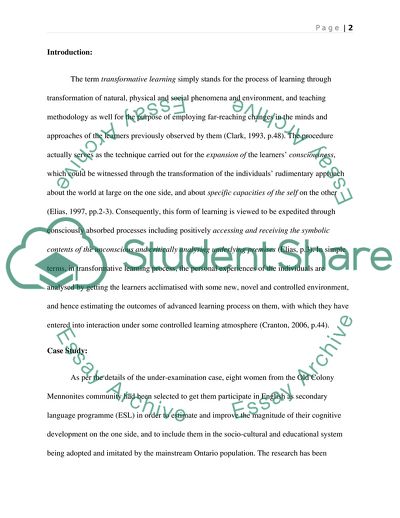Cite this document
(The Importance of Transformative Learning Process Coursework Example | Topics and Well Written Essays - 3250 words, n.d.)
The Importance of Transformative Learning Process Coursework Example | Topics and Well Written Essays - 3250 words. https://studentshare.org/education/1843507-educational-communication
The Importance of Transformative Learning Process Coursework Example | Topics and Well Written Essays - 3250 words. https://studentshare.org/education/1843507-educational-communication
(The Importance of Transformative Learning Process Coursework Example | Topics and Well Written Essays - 3250 Words)
The Importance of Transformative Learning Process Coursework Example | Topics and Well Written Essays - 3250 Words. https://studentshare.org/education/1843507-educational-communication.
The Importance of Transformative Learning Process Coursework Example | Topics and Well Written Essays - 3250 Words. https://studentshare.org/education/1843507-educational-communication.
“The Importance of Transformative Learning Process Coursework Example | Topics and Well Written Essays - 3250 Words”. https://studentshare.org/education/1843507-educational-communication.


